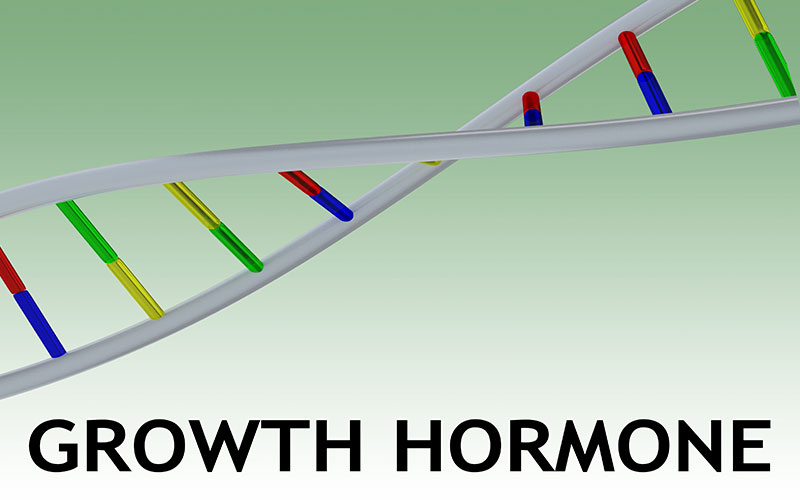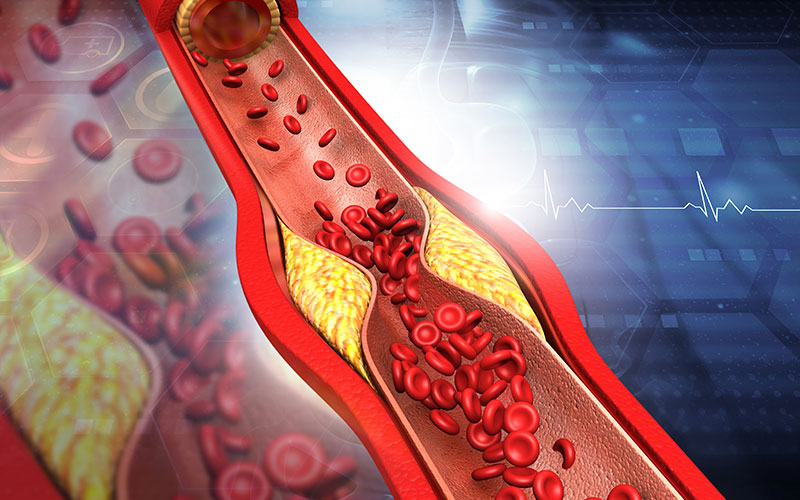- Home
- Growth Hormone
- Growth Hormone
- Growth Hormone Deficiency
- Growth Hormone Therapy
- Growth Hormone Injections
get startedThe Most Effective Hormone Replacement TherapiesThe Effects of Growth Hormone on Cholesterol Levels
Current research suggests several links between growth hormone levels and cholesterol levels.
Keeping your cholesterol levels within the normal range is essential to good heart health. Cardiovascular disease is the leading cause of death in the US today. While many factors can compromise cardiovascular health, cholesterol is one of the biggest contributors to early death resulting from a stroke, heart attack, or other sudden cardiovascular incident.
Human growth hormone, or HGH, is one of your body’s most important hormones. HGH is involved in every aspect of growth. It influences every biological function that allows a child to grow into a healthy adult. Even as an adult, HGH continues to play a vital role as a building hormone, involved in keeping bones and muscles strong and healthy.
HGH also plays a critical role in lipolysis – or how well your body burns fat. This is where HGH is linked to cholesterol. HGH triggers and regulates lipolysis, which means that HGH is essential for preventing fat buildup, including the formation of plaque deposits, which a driven by cholesterol within the arteries. These fatty deposits are the number one cause of heart disease.
What Is Cholesterol?
Cholesterol is a kind of fat in your blood. There are two types of cholesterol – LDL cholesterol, which is bad, and HDL, which is good. If you have too much of the bad kind, it can build up on the walls of your blood vessels and make them narrow. This is what is meant when we say someone has "high cholesterol."
What Is the Normal Cholesterol level?
Total cholesterol levels less than 200 milligrams per deciliter (mg/dL) are considered desirable for adults. A reading between 200 and 239 mg/dL is considered borderline high, and a reading of 240 mg/dL and above is considered high. LDL cholesterol levels should be less than 100 mg/dL.
Health Issues Related to High Cholesterol
When you have too much "bad" (LDL) cholesterol in your blood, it can make it harder for your blood to move through your body. This can lead to high blood pressure and an increased risk of heart disease or stroke. Low levels of HGH can lead to increased levels of LDL cholesterol and a build of dangerous fatty deposits in the arteries. Arterial plaque puts you at a serious risk for heart attack or stroke.
How Does Human Growth Hormone Affect Cholesterol Levels?
There is evidence that growth hormone therapy can lower LDL cholesterol levels. There has been some recent research that has indicated that HGH therapy can be as effective in lowering LDL (bad) cholesterol as the statin drugs usually prescribed for patients with high cholesterol.
Among its many roles, HGH acts as a kind of chimney sweep for your blood vessels, cleansing them of fatty deposits that can clog arteries and lead to heart disease. There is a definite link between HGH and maintaining healthy cholesterol levels. Research has shown that people with GHD tend to have high LDL (bad) cholesterol) and that HGH injections in such patients can lower LDL cholesterol levels, though the exact reasons and to what extent that abnormal HGH levels contribute to the development of unhealthy cholesterol levels is not 100% understood.
However, we do know that it is related to the role that HGH plays in helping to build lean muscle and burn excess fat.
How Does Growth Hormone Deficiency Impact Cholesterol Levels?
There is evidence to suggest that growth hormone deficiency (GHD) can lead to high total cholesterol and a higher LDL cholesterol level. People with growth hormone deficiency cannot burn fat well; they tend to be obese and have a slowed metabolism.
In addition to changes in the balance of fat and lean muscle mass, people with untreated HGH deficiency have been found to have higher levels of "bad cholesterol" (LDL) compared with the rest of the population. LDL cholesterol is the number one cause of atherosclerosis – fatty deposits known as “plaque” that clog arteries and impair blood flow. These plaques can rupture, triggering blood clots and potentially blocking blood flow to the heart or brain, which can cause a heart attack or stroke.
HGH replacement therapy in people with GHD boosts the metabolism and helps you to burn fat and build lean muscle. This has the net effect of lowering BMI (Body Mass Index) out of the obese and into the more normal range, thus lowering your risk of cardiovascular disease.
Research is ongoing to determine the precise biomechanical processes through which HGH affects cholesterol. A sampling from the current research follows.
People with low HGH tend to have high “bad” cholesterol levels.
What Does the Research Say About HGH and Cholesterol Levels?
Current clinical research seems to suggest that growth hormone replacement therapy can help to lower your levels of LDL (bad) cholesterol.
A study published in the medical journal Clinical Endocrinology found that when given HGH injections for six months, treatment with HGH can reduce serum cholesterol concentrations.
A 24-month clinical trial on the effects of HGH on cholesterol concluded that “significant reductions were observed in total cholesterol.”
A study published in Hormone Research in Pediatrics verified the lipolytic properties (fat burning) and cholesterol-lowering effect of growth hormone administration.
This is just a small sample of the volumes of recent research that indicates the cholesterol-lowering ability of HGH.
A 2018 study published in the journal Pediatric Research found that in children already diagnosed with GHD, growth hormone therapy significantly reduced total cholesterol triglyceride and LDL cholesterol levels in the blood.
A 2005 study published in The Journal of Clinical Endocrinology & Metabolism concluded that HGH therapy could lower the risk of cardiovascular disease, particularly “vascular atherosclerosis" resulting from insulin resistance and high LDL cholesterol.
Research suggests that growth hormone therapy can lower your cholesterol and lower your risk of cardiovascular disease.
Now that you know a little bit more about the relationship between HGH and cholesterol, why not contact us today and learn more about the many life-changing benefits of growth hormone therapy.
- Growth Hormone Therapy


























